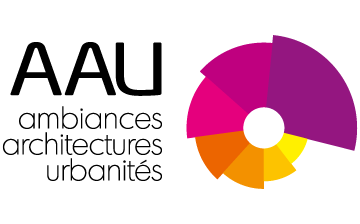L’identité sonore urbaine. Recherche sur l’incorporation critique du concept d’identité sonore dans l’élaboration du projet urbain.
SONIC URBAN IDENTITY
A critical exploration of the concept of “Sonic Identity” as applied to urban planning.
ATIENZA BADEL Ricardo - Thèse de doctorat soutenue en 2008
Encadrement : J.F. Augoyard
FR
Cette recherche constitue une exploration de la notion d’identité sonore urbaine en tant qu’expression vivante de l’interaction homme /environnement, au-delà de possibles réductions patrimoniales. L’objet de cette recherche est une étude de faisabilité concernant la pertinence de ce concept en termes de description et conception qualitative de l’espace. L’étude est configurée de manière transversale, cherchant premièrement à définir cette notion et à interroger ses formes
quotidiennes, deuxièmement à décrire les traits identitaires de l’espace sonore d’une configuration urbaine –les modes de variation caractéristiques du fond et du premier plan sonores -, et troisièmement à étudier l’opportunité de ces traits descriptifs en termes de conception spatiale.
Une question générale incite cette recherche : qu‘est ce qui fonde la pertinence du sonore pour la conception spatiale ? S’agit-il simplement d’un autre « regard » sensoriel ? Une première réponse suppose que la dimension sonore permet, finalement, de penser l’espace en termes temporels.
L’identité sonore du lieu, en tant que caractérisation du temps ordinaire, doit permettre d’introduire la dimension de l’expérience quotidienne dans le projet. Cette recherche suppose ainsi une exploration du temps de l’expérience sonore, temps qui sera interrogé de trois manières : à travers la mémoire sonore habitante, la description de la matière sonore composant cette expérience et, en inversant finalement le rapport entre son et temps, en termes de représentation sonore de l’expérience temporelle de l’espace.
EN
This research constitutes an exploration of the notion of “sonic urban identity”, understood as a living expression of men–environment interaction, beyond a prevailing patrimonial perspective. The final purpose of this research is a feasibility study concerning the pertinence of this concept in terms of space qualitative description and conception. This study displays a transversal itinerary, aiming at (i) defining this notion and questioning its daily forms, (ii) describing the identity traits of sonic space in urban configurations –the background and foreground characteristic variation modes- and (iii) defining the appropriateness of those descriptive features for spatial conception.
A first general question incites this research: what makes sound pertinent to spatial conception ? Is it only a different sensory “point of view”? A first answer states that sonic dimension allows actually
to think space in temporal terms. Sonic identity of a place, as an ordinary time characterization, should allow the introduction of daily experience dimension into the spatial project. This work represents thus an exploration of time sound experience, time being questioned in three ways: (i) through the inhabitant’s sound memory, (ii) the description of the sound material composing this experience and, finally, (iii) through an inversion between sound and time, in terms of sonic representation of space temporal experience.
Key words: sonic urban identity, variation modes, sonic background and foreground, sonic space description, temporal and spatial conception.
